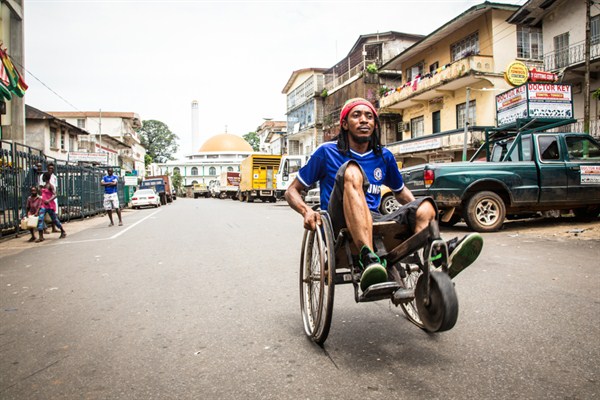“Di war don don,” declared Sierra Leonean President Ahmad Kabbah, in Krio, at a ceremony in the capital, Freetown, in 2002: “The war is over.” The small coastal West African country of Sierra Leone had emerged limping and gasping for air from a decade of one of the bloodiest civil wars in Africa, a conflict that had spilled out across the entire region from Guinea to the north and west to Liberia and Cote d’Ivoire to the east. It was a war over power and the toppling of a corrupt regime, but it became infamous for its “blood diamonds” and the atrocities committed by the Revolutionary United Front (RUF) rebels, whose trademark amputations left thousands of people without hands and feet.
A visit in 2012 to the amputee football team in Makeni, once the rebel stronghold during the war, left me understanding just how ruthless the RUF fighters were. Eleven years earlier, aided by former Liberian President Charles Taylor, the rebel army began their assault on the country. Their slogan was “power and wealth to the people,” but as they took control of the diamond mines, they turned into a sadistic, murderous mob intent only on safeguarding their power and riches.
The goalkeeper of the team, 34-year-old Santos Kallon, showed me the stump where his right hand used to be. He was just a teenager when the rebels broke into his home and forced him and his younger cousin to choose between death or an amputation. Kallon chose to live.

